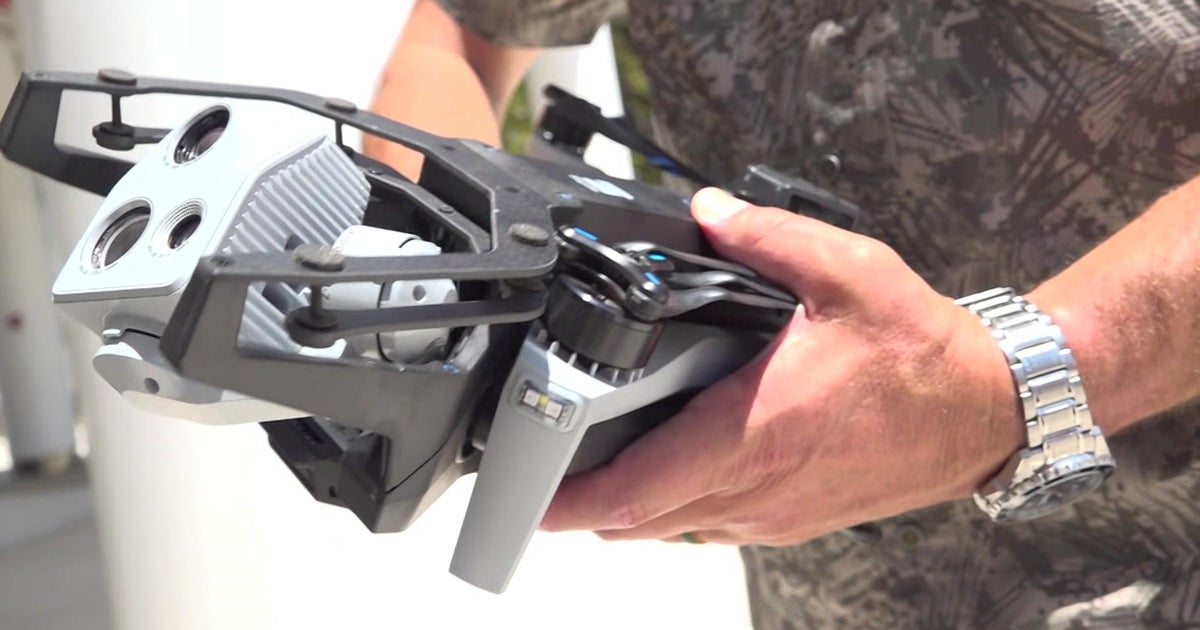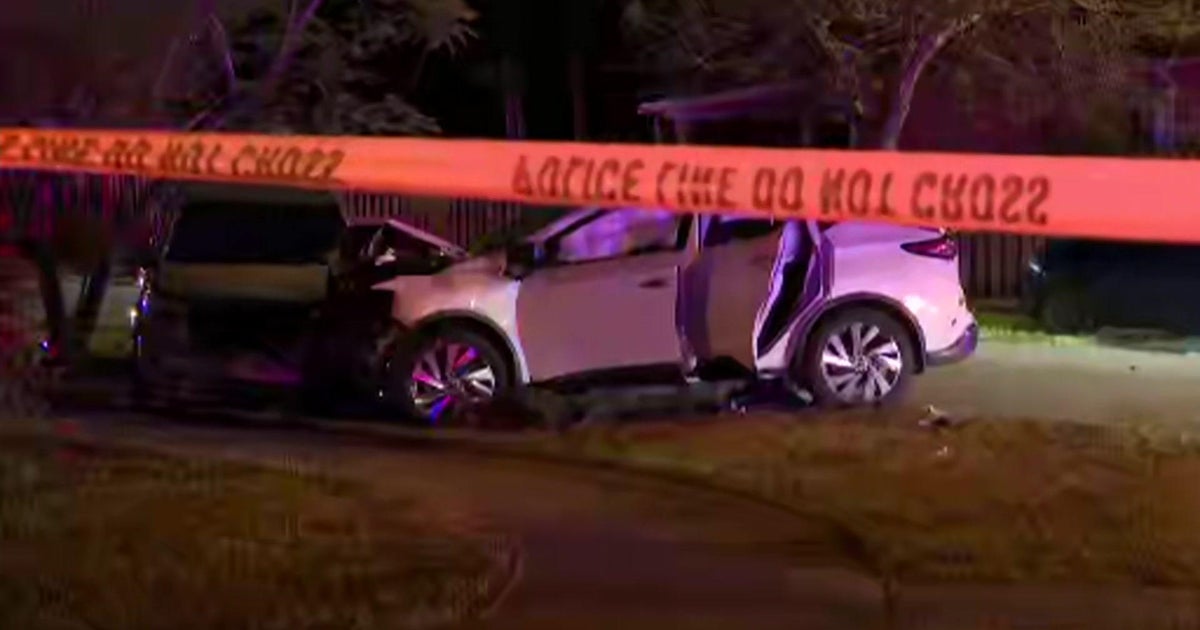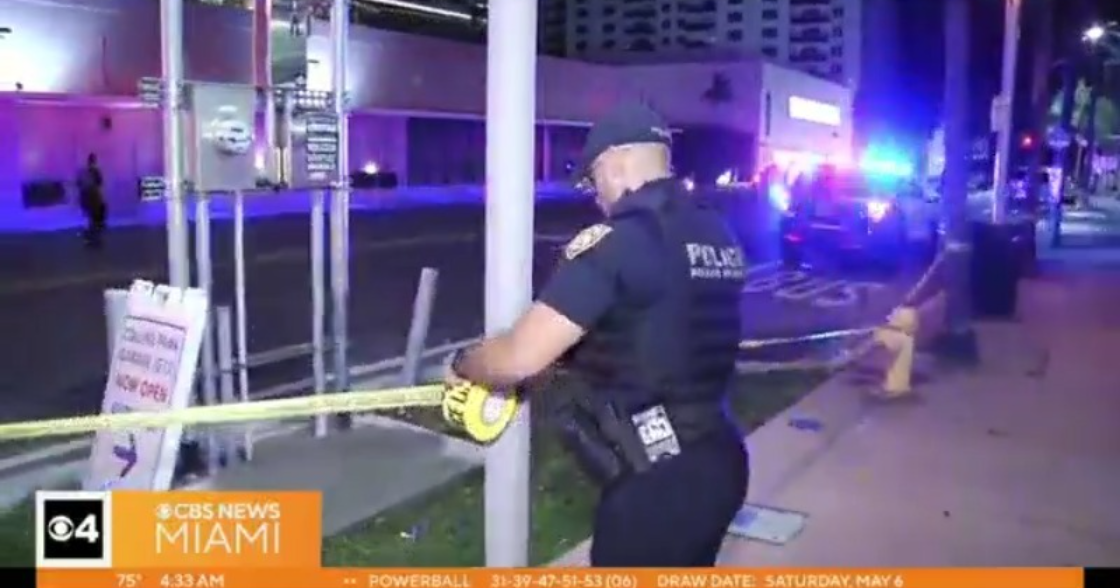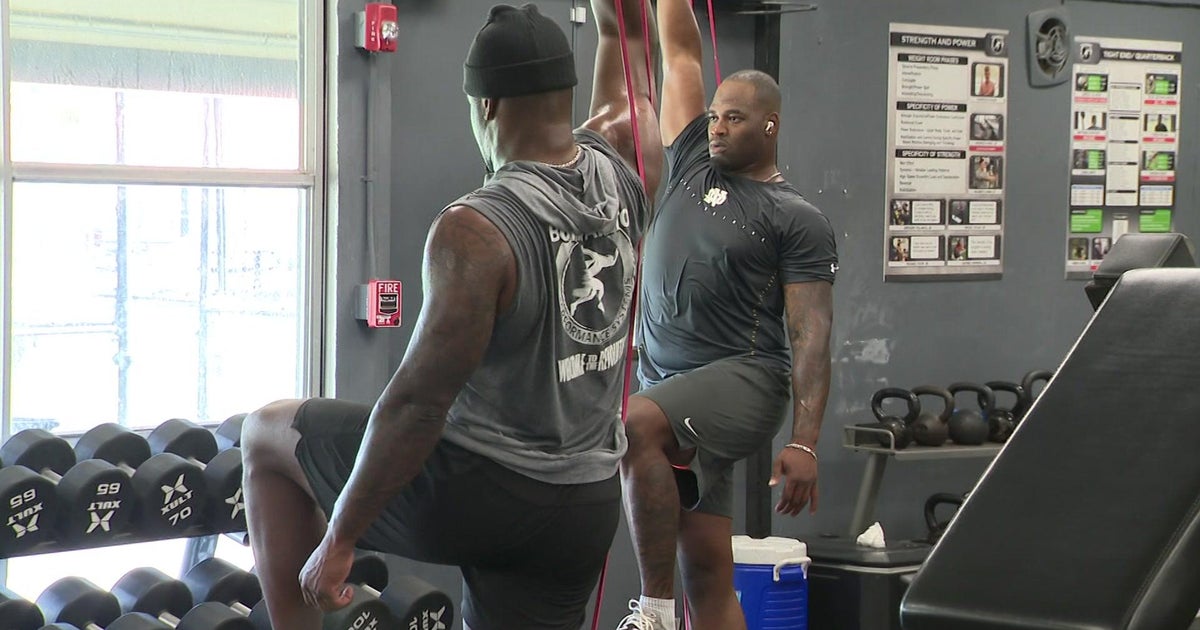Exclusive: Nursing Home Hires New Orleans Attorney, Outlines Defenses
Follow CBSMIAMI.COM: Facebook | Twitter
HOLLYWOOD (CBSMiami) – Jim Cobb, a New Orleans attorney who represented a Louisiana nursing home where 35 residents drowned during Hurricane Katrina, has been hired by the owner of The Rehabilitation Center at Hollywood Hills.
"I've seen this movie before," Cobb told CBS4 News in his first interview since being hired by Jack Michel, the owner of the Hollywood Hills nursing home. "I was in this movie."
In New Orleans, Cobb represented Sal and Mabel Mangano, owners of St. Rita's Nursing Home in St. Bernard Parrish. In 2005, the couple was charged with 35 counts of homicide. Two years later they were acquitted.
Cobb claims there was a public rush to judge the Manganos and he believes the same thing is happening with Hollywood Hills. More than a dozen residents died after Hurricane Irma knocked out the power to the nursing home's air conditioning system.
"Some of the language that some of the politicians are using here in Florida is almost identical to the language used in Louisiana," Cobb said. "The notion that people are saying that this is an outrage, and someone needs to be held accountable, and this is terrible [what] the owner of this nursing home did this to these poor people – it's the same kind of language that was used in Louisiana about Sal and Mabel Mangano."
Cobb was asked: Shouldn't there be outrage, people died?
"No, it's a tragedy," Cobb replied. "An outrage means that someone is responsible for it from negligence to malfeasance or whatever. That's an outrage. A tragedy is when 14 people die."
Cobb said the nursing home is speaking out now, "because we've had enough."
"We did everything we could to protect these residents," he said. "We did everything we could to take care of these residents. And my objection is for politicians to throw rocks at caregivers – that's wrong."
The Hollywood Police Department is investigating the deaths at the nursing home. Meanwhile the families of those that died are filing civil lawsuits, including Pedro Franco whose mother and father both died.
"We want justice," Franco said at a recent press conference. "We trusted these people they are supposed to be professionally trained to save people's lives."
Cobb understands that family members are angry.
"Their anger is justified," he said. "But the anger is misplaced if it's anger directed at us."
The nursing home had 10, large cooling units placed in the hallways on the first and second floors of the home. "We had fans. We had staff. We had all those things," he said. "That does not combine into a conclusion of gross negligence. It is not an outrage, it is a tragedy. A tragedy born more by someone named Irma than an administrator or a nurse."
Four residents died inside the nursing home in the early morning hours of Wednesday September 13, three days after Hurricane Irma hit. Another four residents died shortly after the nursing home was evacuated. And the rest died in the days and weeks that followed.
Cobb offered a bleak assessment of why some of these residents died.
"The majority of patients who expired were on Hospice," he said. "What happens in these situations, and we saw it in Louisiana, is the sickest folks go first. They are the weakest."
Politicians as well as attorneys for those who died argue the lack of air conditioning led to the deaths. The Broward County Medical Examiner has yet to rule of the causes of death in the various cases.
"I'm not a doctor and unlike some other folks here in Florida who want to make those charges I'm going to let the medical professionals take a look at that," he said. "I'm going to look at the evidence and we are going to let somebody decide that."
"My own view and we talked about this before today, is that hyperthermia, which is what happens when somebody gets overheated, comes on just like that," he said, snapping his fingers.
An overriding question, raised repeatedly by Governor Rick Scott and others, is why, after the AC went out, didn't the home evacuate.
"Great question," he said. "The data is quite clear."
The data Cobb is referring to are a series of studies performed by researchers, including University of South Florida professor Kathryn Hyer, who examined the fate of nursing home residents during hurricanes Katrina, Rita, Gustav and Ike.
During a recent Congressional hearing on the Hollywood Hills nursing home deaths, Hyer testified: "Our research showed that among 36,000 nursing home residents exposed to those hurricanes the 30 and 90 day mortality and hospitalization rates increased considerably compared to non-hurricane years."
Her conclusion: "Natural disasters clearly result in excess deaths and hospitalizations among frail populations."
The study went further, examining death rates for those nursing home residents who were evacuated versus those who sheltered in place.
"More casualties occurred if they evacuated rather than sheltered and remained in their own building," she noted.
Cobb was quick to stress this point as well. "A resident of a nursing home is 300 percent more likely to die if evacuated as opposed to sheltering in place," he said. "So evacuation is fraught with risk. Whether that evacuation is across the street or across the state. So the preferred methodology across the nation is shelter in place."
Cobb continued: "The other reason we didn't evacuate in Hollywood is because there was no evacuation order. There was no evacuation order. What happened was as a practical matter the state lost power. We then got on the phone immediately, creating work orders with Florida Power and Light. We called them fifteen times in 36 hours. Call after call after call."
In addition to the calls to FPL, there were four calls placed to Governor Scott's cell phone, as well as calls to the state Department of Emergency Management. But none of them resolved the problem.
"Think about the Catch 22 situation that you are in if you are the decision maker," Cobb said. "On the one hand you are talking to FP&L who says, `The cavalry is coming. We're right on the other side of the hill. We're coming.' Do we then put at risk the lives of 140 people on the assumption that they are not coming when they have told us that they are? So you've got to rely on something. You've got to rely on somebody and we chose in that circumstance to rely upon the course of conduct which was best for our residents. And what's the course of conduct that is best for our residents according to the data? Not to evacuate. To shelter in place."
Experts interviewed by CBS4 News however, suggested there may have been an all or nothing situation. The nursing home could have tried to identify those patients most susceptible to prolonged heat and moved them before the situation became critical.
"Well hindsight is perfect vision. It's not just 20-20 it's perfect," he said. "I'm not going to speculate as to what we may have done in hindsight."
DeFede asked Cobb: Should you have had a backup generator for the cooling units?
"No," he snapped back. "We were in complete compliance with the requirements for the nursing home at the time of this casualty – complete compliance. As I understand it there was some legislation that was introduced several years ago to require all nursing homes to have generators and that legislation failed did it not?
Legally he may not have been required, but what about morally? Could the nursing home have gone the extra step and had an emergency generator for the AC unit?
"Well we could have put an emergency generator and air conditioning unit in every single room – it's not a moral question," he said. "It's a question of what is required under state law."
Time and again Cobb came back to the issue of politicians making political hay out of these deaths.
"The politicians who are calling outrage and calling for people's heads – what are they doing? Well we know what they are doing, we all watch politicians all the time. They're scapegoating," Cobb said.
In a preview of things to come, Cobb revealed a possible defense strategy, suggesting some of the deaths may have resulted from the manner in which paramedics and Memorial Regional Hospital evacuated the nursing home.
"I was in Louisiana watching this tragedy unfold and I saw these residents who had been taken out of the Hollywood home and evacuated across the street to Memorial laying in gurneys and beds in the sun, in the Florida sun," he said. "Now I don't know who did that. But I'll submit to you that that wasn't a very wise thing to do."
A spokeswoman for Memorial issued the following statement: "We are fully cooperating with the criminal investigation. We will not discuss any HIPAA protected information. We believe the evacuation saved lives that day."
Going forward, Cobb said, the Legislature should require FPL to place nursing homes on their priority list for repairs after a storm. Once FPL arrived, it took less than 25 minutes to restore power and get the AC up and running,
"The storm is gone. Let's figure out how to fix it," he said. "And the notion of making nursing homes and assisted living centers a priority item for restoration of power, is a pretty good notion. What do you think would have happened if that was in place before the storm? We might not be here right?"



